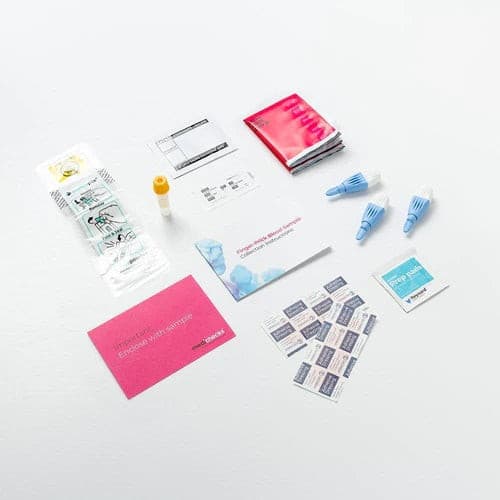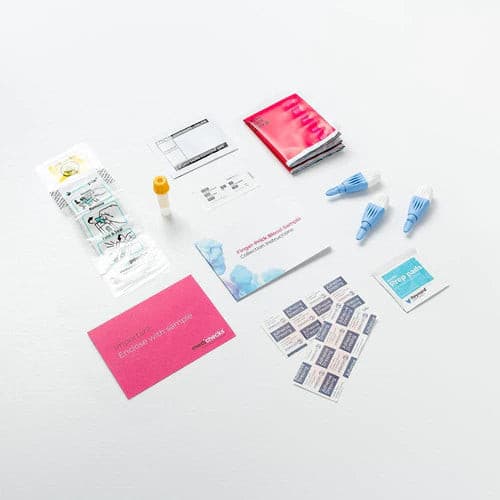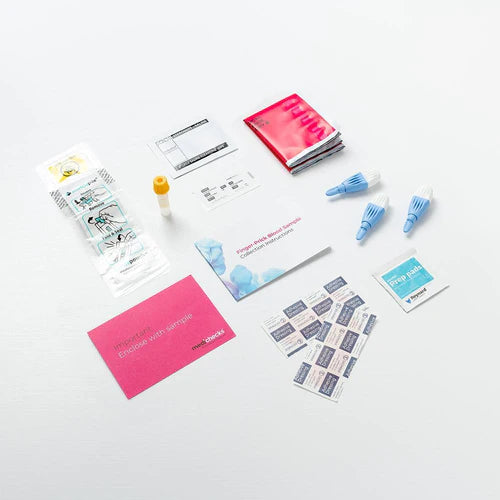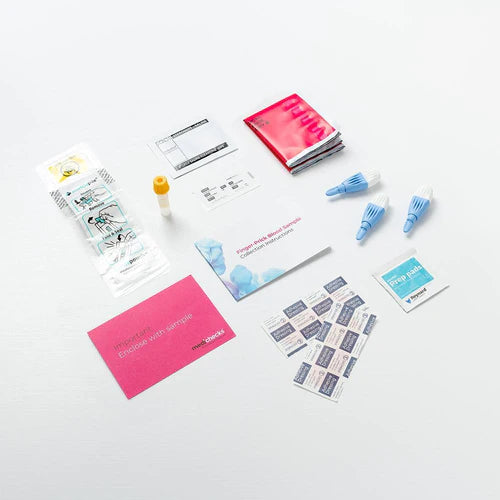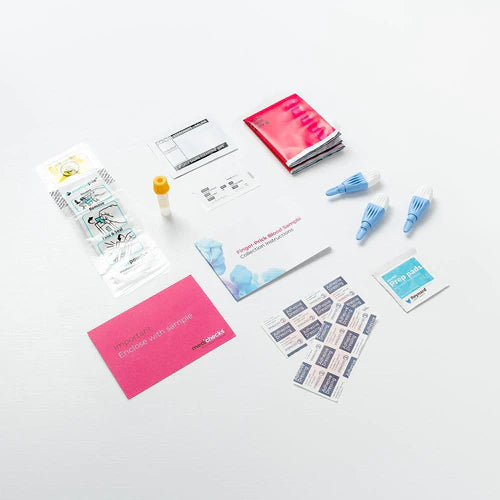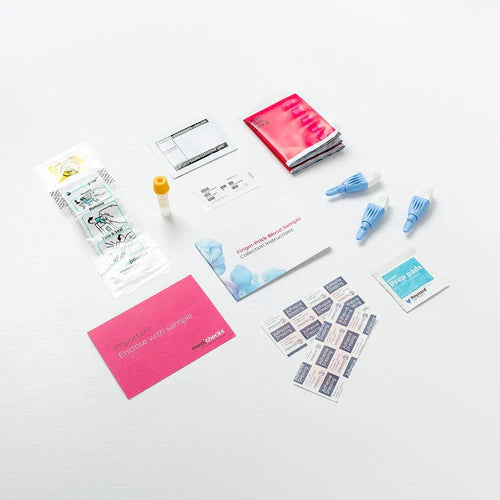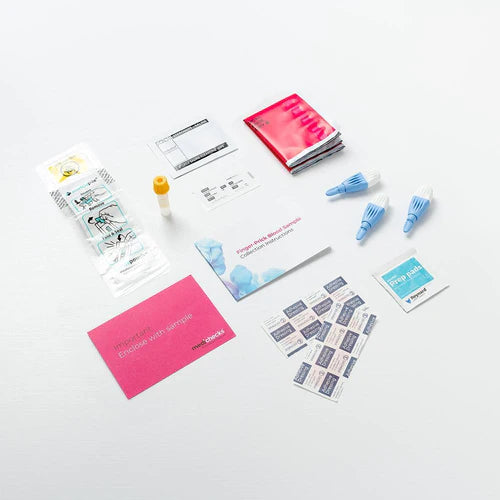
About Description
- This test is important for athletes
- It contains a testosterone/cortisol ratio
- the balance of training and recovery
Why People Choose Us

Quick & Easy
No appointment or long waiting times

Discreet Packaging
Plain packaging with no medical stamps or marks

Confidential Service
Your information stays with us and private payment

UK Medication
Dispensed by registered UK pharmacists
The outer part of your adrenal glands, known as the adrenal cortex, produces hormones that are essential to life, such as cortisol, which affects metabolism and how your body reacts to stress, and aldosterone, which lowers blood pressure by maintaining a balance between salt and water.
Your adrenal glands are located on top of your kidneys. The adrenal medulla, which is located inside the adrenal glands, produces hormones like adrenaline that aid in triggering the fight-or-flight response.
Stress hormones can be produced too much or too little as a result of disorders of the adrenal glands, and this can result in a variety of symptoms such excessive fatigue, anxiety, insomnia, and weight gain.
Despite doing much more than only being released during times of stress, cortisol is referred to as the "stress hormone." The adrenal gland produces cortisol, which affects most of the cells in your body.
It can improve memory and control blood sugar, blood pressure, metabolism, inflammation, and metabolism. High-performance athletes may create more cortisol than the ordinary person since they are frequently exposed to mentally and physically taxing situations.
To further complicate matters, athletes who overtrain or push themselves too far may actually produce less cortisol.
We do know that if your cortisol levels are too high or too low, you will not perform to the best of your potential, and it will be vital to uncover the underlying cause for the disturbed levels.
However, a thorough assessment of all the material failed to find any evident trends for optimization. With you, our doctors will go over what comes next.
Every bodily function, including development, metabolism, reproduction, and sleep cycles, is controlled by hormones.
Your mood and energy levels, as well as your fertility and libido, can all be negatively impacted by even a slight hormonal imbalance.
Chemical messengers known as hormones are produced in your glands and delivered into your bloodstream. Your body receives instructions from them on how to control your appetite, growth, mood, and reproduction.
In general, they maintain the body's equilibrium and functionality. Hormone imbalances are frequently treated with hormone replacement therapy or by altering one's lifestyle. Throughout the day and for women during the menstrual cycle, hormone levels change.
A hormone called testosterone is responsible for male features. It plays a part in controlling bone mass, fat distribution, muscular mass, strength, the creation of red blood cells, and the production of sperm in men.
It also helps to regulate sex drive. Men's testicles and, to a much lesser extent, women's ovaries both produce testosterone.
Although lower than normal amounts of testosterone can occur at any age and can result in low libido, erectile dysfunction, difficulties gaining and retaining muscular mass, and lack of energy, testosterone levels in males naturally fall after the age of 30.
Even though testosterone levels in women are significantly lower than in men, it is still vital for the same reasons—it affects libido, how fat and muscle are distributed, and how red blood cells are formed.
Because reference ranges are dependent on the population being tested, they will all somewhat vary between laboratories. 95% of men will fall inside the usual range, which has been determined.
We follow the British Society for Sexual Medicine's (BSSM) recommendations for greater consistency, which state that low testosterone can be diagnosed when levels are consistently below the reference range and that levels below 12 nmol/L may also be considered low, particularly in men who also experience symptoms of low testosterone or who have low levels of free testosterone.
A measure that holds promise for determining how effectively athletes are recovering from rigorous training is the testosterone/cortisol (T:C) ratio.
Testosterone is an anabolic hormone that promotes the production of red blood cells, increases aerobic metabolism in muscles, and aids in muscular growth.
When combined with testosterone, the catabolic hormone cortisol inhibits protein synthesis and silences anabolic signalling.
Compared to either metric alone, the T:C ratio is more responsive to the demands of training. To determine how well you are recuperating, you can trend the data over time.
Easy Steps for your Medicine

Complete a consultation.
With complete privacy and confidentiality your form is checked by a pharmacist independent prescriber.
Choose your treatment.
From the list approved by the prescriber, choose your preferred treatment and then wait for it to be dispensed by UK Meds online pharmacy.
Receive your delivery
With next day delivery options available, you can have your treatment sent out to you discreetly within hours.Our Happy Customers
Rated Us for our Service Excellence
 Dispensed by Regulated UK Pharmacists
Dispensed by Regulated UK Pharmacists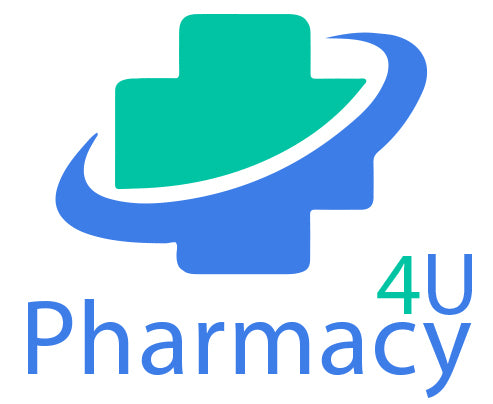

 How it works
How it works Help
Help Account
Account
 Basket
Basket















